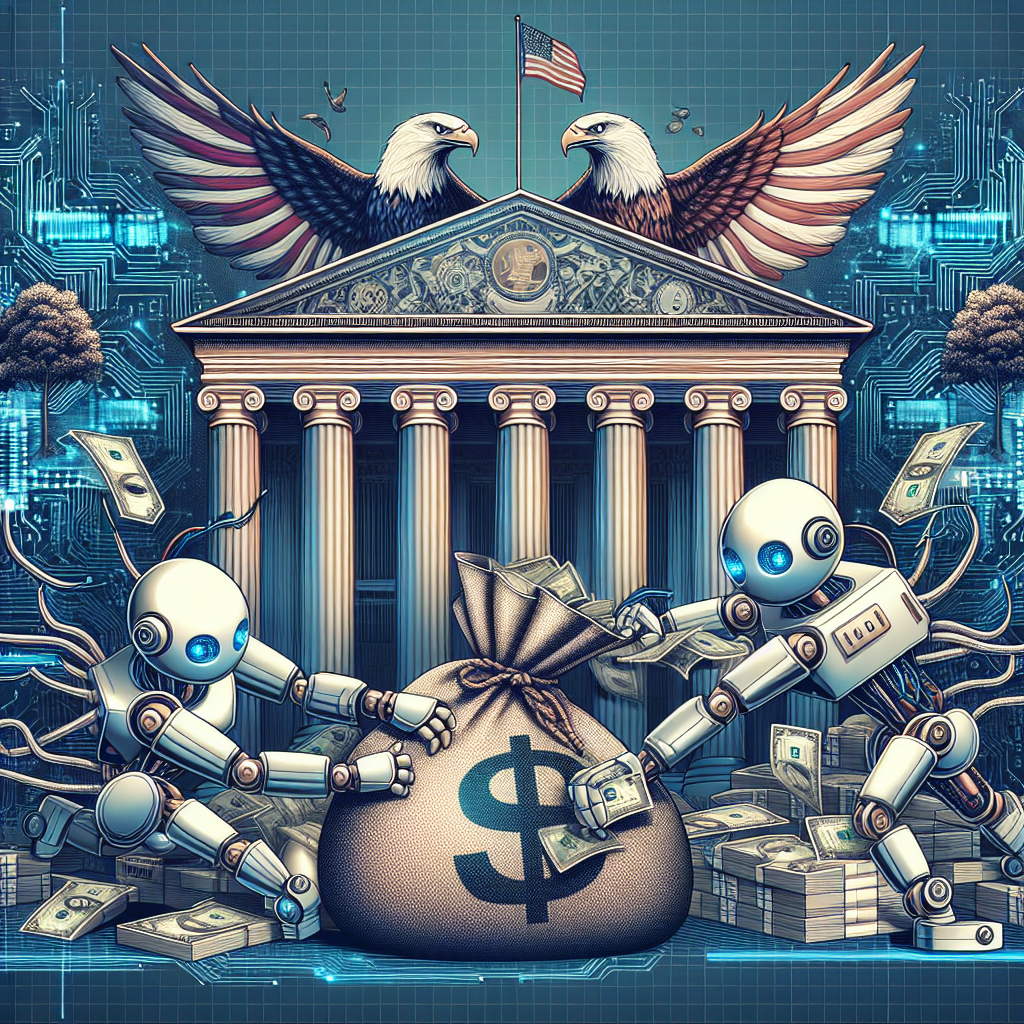Altcoins
US Treasury Leverages AI to Recover Over $4.1 Billion in Financial Fraud in 2023

The U.S. Treasury has intensified its efforts to combat financial crimes by harnessing the power of Artificial Intelligence (AI). Financial crimes such as money laundering, tax evasion, and theft often involve complex schemes, making it challenging for authorities to identify and dismantle them. Traditional methods require painstaking analysis of vast amounts of data, but AI has streamlined this process, allowing for more efficient detection and prevention of fraudulent activity. Recently, the Treasury Department successfully uncovered fraud amounting to nearly $4.1 billion, showcasing the potential of AI in safeguarding public funds.
The urgency for such advanced measures is underscored by the Federal Government Accountability Office’s estimation that federal agencies lose between $235 billion and $530 billion annually due to fraud. This staggering figure underscores the necessity of integrating data analytics and AI technologies to enhance the detection and prevention of these illicit activities.
In the current fiscal year, spanning from September 2023 to September 2024, the U.S. Department of the Treasury has made remarkable strides in utilizing AI to detect and recover funds from fraudulent activities. According to a recent press release, the department has successfully reclaimed over $4.1 billion in fraudulent transactions and improper payments. This includes halting approximately $1.1 billion in check fraud and recovering an additional $3 billion from improper payments.
The detailed announcement also highlighted the prevention of approximately $510 million in fraud and improper payments. By prioritizing the identification of high-risk transactions, the department was able to avert an additional $2.55 billion in potential fraud. These figures illustrate the significant impact of AI in strengthening the Treasury’s ability to protect financial resources.
The Treasury’s integration of AI into its operations is not a recent development. Since 2022, the department has been quietly training its systems to efficiently analyze and detect fraud. The results have been impressive, with the amount recovered this year being nearly six times that of the previous year’s total of $660 million. Renata Miskell, a senior Treasury official, described the experience as transformative, emphasizing how leveraging data and AI has elevated their fraud detection and prevention capabilities. “Fraudsters are adept at concealment, attempting to exploit the system covertly,” Miskell noted. “AI, combined with data analytics, enables us to identify hidden patterns and anomalies, aiding in the prevention of fraudulent activities.”
The Internal Revenue Service (IRS), the U.S.’s primary tax collection agency, is also leveraging AI to enhance its operations. Utilizing AI technologies, the IRS has successfully recovered approximately $1.35 billion from affluent taxpayers involved in tax fraud. This development comes amidst reports indicating that such taxpayers owe an estimated $500 billion in unpaid taxes annually. Given these significant dues, the IRS plans to continue employing AI to combat tax fraud and enhance audit processes in the future.
Beyond the IRS and the Treasury, AI’s transformative impact is being felt across various industries, including cryptocurrency. The demand for AI-driven solutions is on the rise, as companies seek to harness its capabilities to uncover hidden patterns and enhance operational efficiency. As AI technology continues to advance, it is becoming an integral part of strategies to combat financial crime and safeguard economic stability.
The U.S. Treasury’s proactive stance in adopting AI underscores the department’s commitment to reducing the risk of financial fraud. Despite disbursing approximately 1.42 billion payments, totaling around $5.95 trillion, the Treasury acknowledges the growing threat posed by online payment-related fraud. Estimates suggest that such fraud could escalate to $365 billion by 2028, necessitating the implementation of advanced technologies like AI to preemptively address these challenges.
In summary, the integration of AI into the U.S. Treasury and IRS operations marks a significant advancement in the fight against financial crime. By leveraging cutting-edge technology, these agencies are better equipped to identify, prevent, and recover funds from fraudulent activities, thereby enhancing the protection of public resources and strengthening economic security. As AI continues to evolve, its role in combating financial fraud is likely to expand, offering new opportunities for innovation and efficiency in safeguarding the nation’s financial systems.
-

 Press Releases2 years ago
Press Releases2 years agoGaming Technologies of the New Time!
-

 Altcoins12 months ago
Altcoins12 months agoBitcoin Declines Below $80K: deVere CEO Nigel Green Remains Bullish on Long-Term Outlook Following Strategic U.S. Bitcoin Reserve Announcement
-

 Altcoins11 months ago
Altcoins11 months agoCalls for Enhanced Discussion on Bitcoin as Brazil’s Reserve Asset: A Move Towards ‘Internet’s Gold’
-

 Bitcoin1 year ago
Bitcoin1 year agoBitcoin Surges Past $64K as SEI and POPCAT Lead Daily Crypto Gains on September 25
-

 Press Releases2 years ago
Press Releases2 years agoEvo Exchange: Redefining the Decentralized Exchange Landscape
-

 Bitcoin7 months ago
Bitcoin7 months agoGrayscale Investments Submits Draft Registration for IPO, Aiming for Public Trading in U.S.
-

 Press Releases1 year ago
Press Releases1 year agoCODE, a Newly Born Project Brings Decentralization Back to the Main Menu
-

 Bitcoin7 months ago
Bitcoin7 months agoPeter Schiff Critiques New Crypto Legislation, Claims Bitcoin (BTC) Gains are Short-Lived




